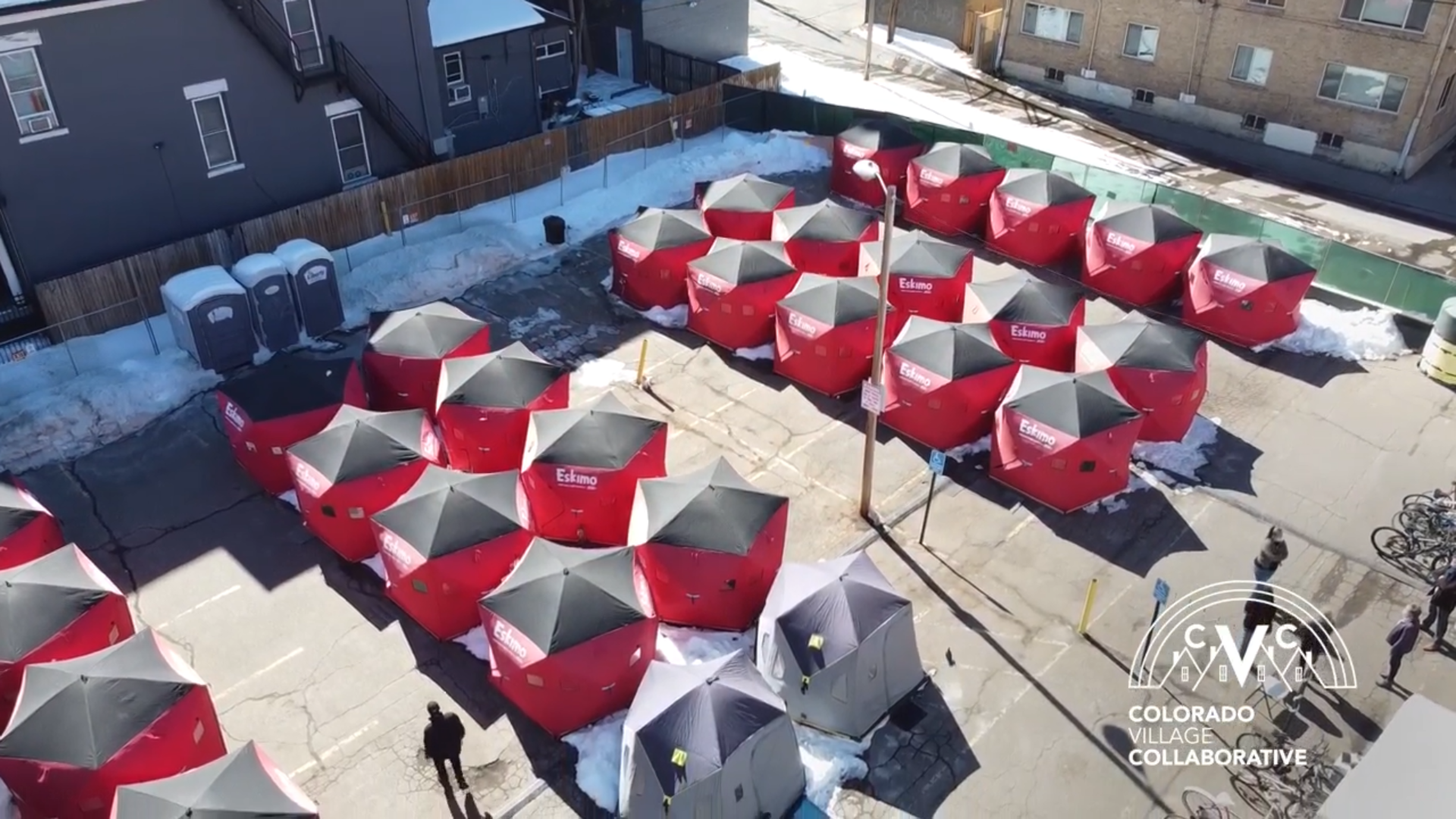
Kyle Harris

Audio By Carbonatix
A Denver District Court judge has dismissed a lawsuit designed to block the establishment of a safe-camping site in the parking lot of the Park Hill United Methodist Church.
“That was the best thing we could’ve hoped for,” says Cole Chandler, director of the Colorado Village Collaborative, which is planning to set up the safe-camping site for people experiencing homelessness later this month and have it operational by mid-June.
Judge A. Bruce Jones dismissed the case on May 19, ruling that the five Park Hill residents who’d filed the lawsuit on May 6 – Kurt Monigle, Dave Rodman, Jean-Baptiste Varnier, Justin Lovac and Blair Taylor – had not exhausted all possible administrative remedies regarding their issues with the safe-camping site plan. Before filing suit, the judge determined, the five should have filed an appeal with the Denver Board of Adjustment for Zoning Appeals; they can take that route now.
In their original complaint, the five Park Hill residents complained that the site “has not met the requirements set out by the city, pose[s] a real danger to minors and school-aged children, does not address the impact it will have on the neighborhood and displaces people from an area with available resources to an area not equipped to handle the purpose of the [safe-camping site].” It named the church, pastor Nathan Adams, the Colorado Village Collaborative and the City of Denver as defendants.
Jones’s ruling clears the way for the CVC and the church, with is located on Montview Boulevard between Forest and Glencoe streets, to set up the site so that people experiencing homelessness can start sleeping there next month, right after the leases for the city’s two existing safe-camping sites run out. One of those, at the Denver Community Church in Uptown, is run by the CVC; the other is run by Interfaith Alliance of Colorado and Earthlinks at the First Baptist Church just south of the Capitol.
In addition to the Park Hill United Methodist Church site, the CVC is setting up a safe-camping site at a parking lot on Regis University’s campus, which should also become operational in the first weeks of June. The combined capacity of the two sites will be about 100; their leases will run through the end of the year.

One of the city’s first safe-camping sites.
YouTube
The plaintiffs will likely be able to argue their case before the Denver Board of Adjustment for Zoning Appeals, which adjudicates administrative issues related to the Denver Zoning Code, sometime in late June or mid-July, according to Austin Keithler, technical director for the Board of Adjustment for Zoning Appeals.
“We have received several appeals on the same issue,” he says. “While we have multiple cases, we are planning to hear them at the same time to avoid addressing identical issues on separate dates.” After hearing the arguments, the board can either issue a decision on the spot or within a week.
Even as the administrative appeal process plays out, though, the Park Hill safe-camping site can go live.
“The permit has been issued. No further action by the city is required,” Josh Roberts, a lawyer with the Denver City Attorney’s Office, said during the May 19 hearing in Denver District Court before the judge’s ruling.
Roberts was referring to the fact that the Denver zoning administrator had already issued a temporary-use permit to Park Hill United Methodist Church and the CVC on May 7, a move that the plaintiffs will be challenging before the Board of Adjustment for Zoning Appeals.
Chandler, who notes that the CVC has received over $35,000 in charitable donations since the lawsuit was filed, thinks the stakes will be even higher as this case continues. “Next time this is heard by the Board of Adjustment or a court, they will be deciding whether or not to remove people from a safe outdoor space,” he says.
The May 19 court hearing never really touched on the merits of the safe-camping concept and instead revolved around whether the court should stay the case, essentially placing a pause on the legal proceedings until the plaintiffs file an appeal with the Board of Adjustment for Zoning Appeals and have a hearing.
But Heather Thomas, one of the two attorneys representing the five plaintiffs, began with an opening statement that focused less on procedural matters than pushed back on what she perceived to be a negative narrative about her clients.
“Much has been written and said about this case in the media, but not by our clients. Our clients have been portrayed in the media and opinion editorials as people who are heartless, against the people experiencing homelessness, racist, wealthy snobs, and various other-” Thomas said before the judge cut her off.
“Counsel, counsel. No, no, no, no,” Jones said, as he held up his hand in front of the camera that was streaming a feed onto the Webex platform. “If you want to have a press conference, go have a press conference. I want an argument on the issue that I just framed. So we’re not going to do a media event here. All right?”
However, Jones did tell Thomas that he wasn’t “particularly happy with the brief that referred to this as a ‘not in my backyard’ classification of the plaintiffs,” adding that it was “disrespectful.”